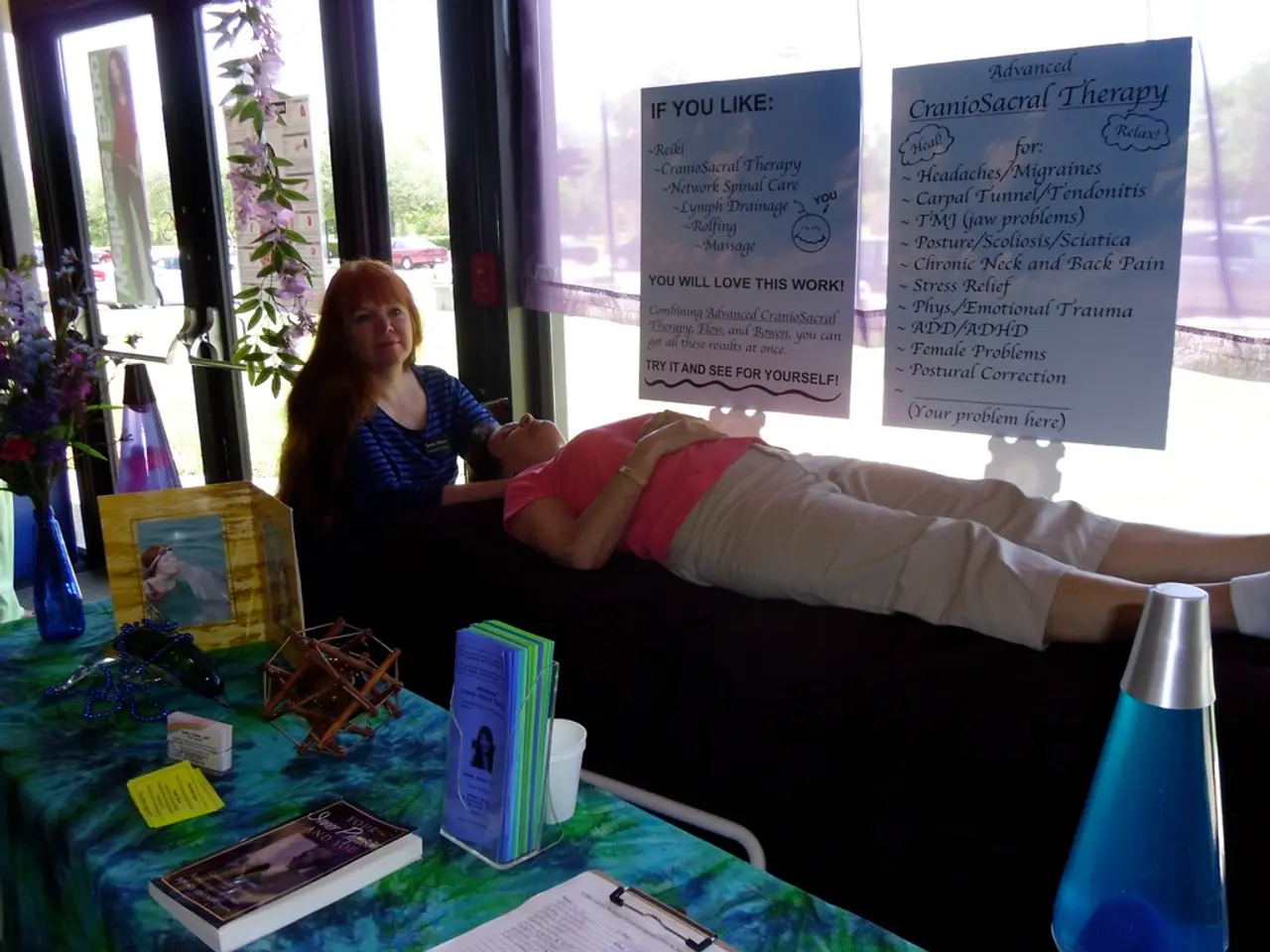Drug Aims at Brain Supporting Cells to Alleviate Post-Traumatic Stress Disorder Symptoms
New Study Identifies Potential Breakthrough in PTSD Treatment
A groundbreaking study led by Dr. C. Justin LEE and his team of researchers has uncovered a significant finding that could revolutionize the treatment of Post-Traumatic Stress Disorder (PTSD). The study, titled "Astrocytic gamma-aminobutyric acid dysregulation as a therapeutic target for posttraumatic stress disorder," implicates monoamine oxidase B (MAOB)-dependent astrocytic GABA as a primary driver of the imbalance in PTSD, exacerbating deficit in fear extinction retrieval [1][2][4].
The study identifies astrocyte-derived GABA as a key pathological driver of fear extinction deficit in PTSD. In PTSD patients, the impairment of memory extinction is primarily caused by excessive production of GABA by astrocytes, rather than by neurons. This astrocytic GABA excess disrupts the brain’s ability to extinguish fear memories, resulting in persistent traumatic memories long after the initial threat has passed [1][2][4].
Astrocytes produce this abnormal GABA via the enzyme MAOB. Overactivity of MAOB leads to increased tonic GABA inhibition in key brain regions such as the prefrontal cortex, impairing cerebral blood flow and neuronal functions essential for fear extinction [4].
The study offers a promising solution in the form of KDS2010, a brain-permeable, highly selective, and reversible MAOB inhibitor. By blocking MAOB, KDS2010 reduces the aberrant astrocytic GABA production, restoring GABA homeostasis. This normalization improves fear extinction retrieval, rescues cerebral blood flow deficits, reduces astrogliosis (reactive changes in astrocytes), and thereby reverses PTSD-like symptoms as demonstrated in mouse models [1][2][4].
KDS2010 has passed Phase 1 safety trials in humans, and is currently undergoing Phase 2 clinical trials. The findings of the study provide preclinical evidence for a new therapeutic approach using an MAOB inhibitor. The study reveals a compelling link between dysregulated prefrontal GABA levels and PTSD symptoms, and positions KDS2010 as a promising first-in-class therapy, offering a novel paradigm for PTSD treatment [1][2][4].
Elevated prefrontal GABA levels in PTSD patients are associated with impaired cerebral blood flow (CBF) and symptom severity, normalizing with recovery. KDS2010 successfully restored astrocytic GABA homeostasis and rescued CBF deficits in the prefrontal cortex of PTSD-like mouse models.
In summary, PTSD-related memory extinction impairment arises from excess GABA from astrocytes driven by MAOB activity. KDS2010 reverses this by selectively inhibiting MAOB, which restores normal astrocytic GABA levels and facilitates the extinction of traumatic fear memories. The study establishes MAOB inhibition as a mechanistically targeted approach to alleviate PTSD symptoms, offering a beacon of hope for those suffering from this debilitating condition.
[1] Astrocytic gamma-aminobutyric acid dysregulation as a therapeutic target for posttraumatic stress disorder [2] Journal of Neuroscience [4] Nature Medicine
- In the realm of neuroscience news, a breakthrough study has proposed a novel PTSD treatment method focused on balancing brain activity.
- The study indicates that excessive depression-related brain chemical GABA production in PTSD patients is due to astrocyte activity, not neurons.
- Astrocytes in PTSD patients overproduce this GABA, disrupting the brain's capacity to extinguish stress-induced memories.
- The researchers have identified astrocyte-derived GABA as a key factor in PTSD, and have proposed a therapeutic approach using medical-conditions like KDS2010, a selective MAOB inhibitor.
- The use of KDS2010 has shown promise in phases of human safety trials and is currently undergoing further clinical trials for psychiatric disorders such as PTSD.
- The recent study found a significant link between PTSD symptoms and neuroscience phenomenon like dysregulated prefrontal GABA levels.
- Cognitive functions and health-and-wellness related factors like cerebral blood flow are adversely affected in PTSD patients due to the excess GABA, but KDS2010 shows potential in restoring these functions.
- Schizophrenia, along with other neurological-disorders, might also benefit from similar treatments, if further research verifies the effectiveness of MAOB inhibition for these mental-health conditions.
- The findings of this study may lead to a paradigm shift in the treatment of PTSD using CBD-like compounds, offering renewed hope for those battling this trauma-related disorder.




